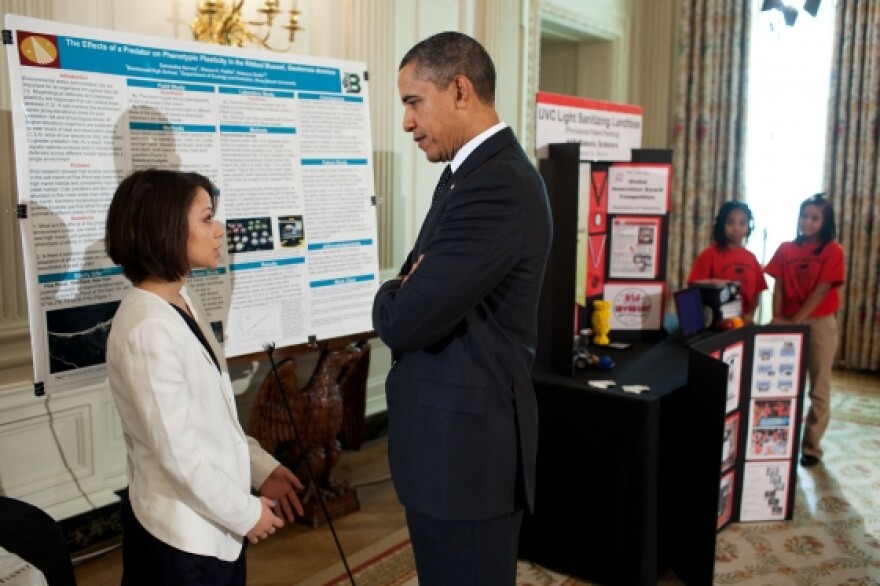Science fair winners may not enjoy the celebrity and wealth of Super Bowl champions, as President Obama has quipped they should, but science fairs can yield lucrative scholarships and prizes, not to mention invaluable learning experiences for those who participate.
Personally, I never won a penny from a science fair. I don't actually remember if I won at all. But I do remember my science fair projects. Vividly. There was the home-made electrolysis unit to split water. Or the closet filled with beans planted in oddly positioned egg cartons - a test of whether gravity or light has a stronger influence on nascent plants' direction of growth. Or my masterpiece, a combined lab and field study of fluctuations in river pH and its impact on aquatic plant health.
I can't honestly say if any of those projects put me on a path to a career in science. Truth be told, I've always chalked that up to a summer camp I attended in middle school. Nonetheless, science fair was clearly a memorable learning experience. Perhaps that's what experts are talking about when they refer to the power of student-driven, inquiry-based learning.
Of course, students don't have to go it totally alone. Mentorship can be key to a successful science fair experience, and students here in Falmouth have access to a wealth of mentors in the form of professional scientists from Woods Hole. Woods Hole Science Technology Education Partnership is a non-profit that acts as a liaison between local scientists and students at public schools in Falmouth, Mashpee and Bourne. Perhaps that's why Falmouth High School students consistently end up on the list of winners at the Massachusetts State Science and Engineering Fair.
Winning a science fair can be lucrative, with thousands of dollars in prize money and scholarships up for grabs. There are countless stories of science fair winners who were only able to attend college because of their winnings, and countless more of students for whom the intangible benefits of an independent learning experience made all the difference in their academic and career paths. A survey of past participants of the Massachusetts State Science and Engineering Fair found that more than half were pursuing STEM-related careers.
Science fairs are time- and labor-intensive, though, and both students and teachers face an increasingly long list of academic requirements and extracurricular activities. Whether science fairs are worth the effort - whether they help meet state and federal standards, or take up time needed for other things - is a matter of some debate.
So students, teachers, mentors, tell us: what's your science fair story?



